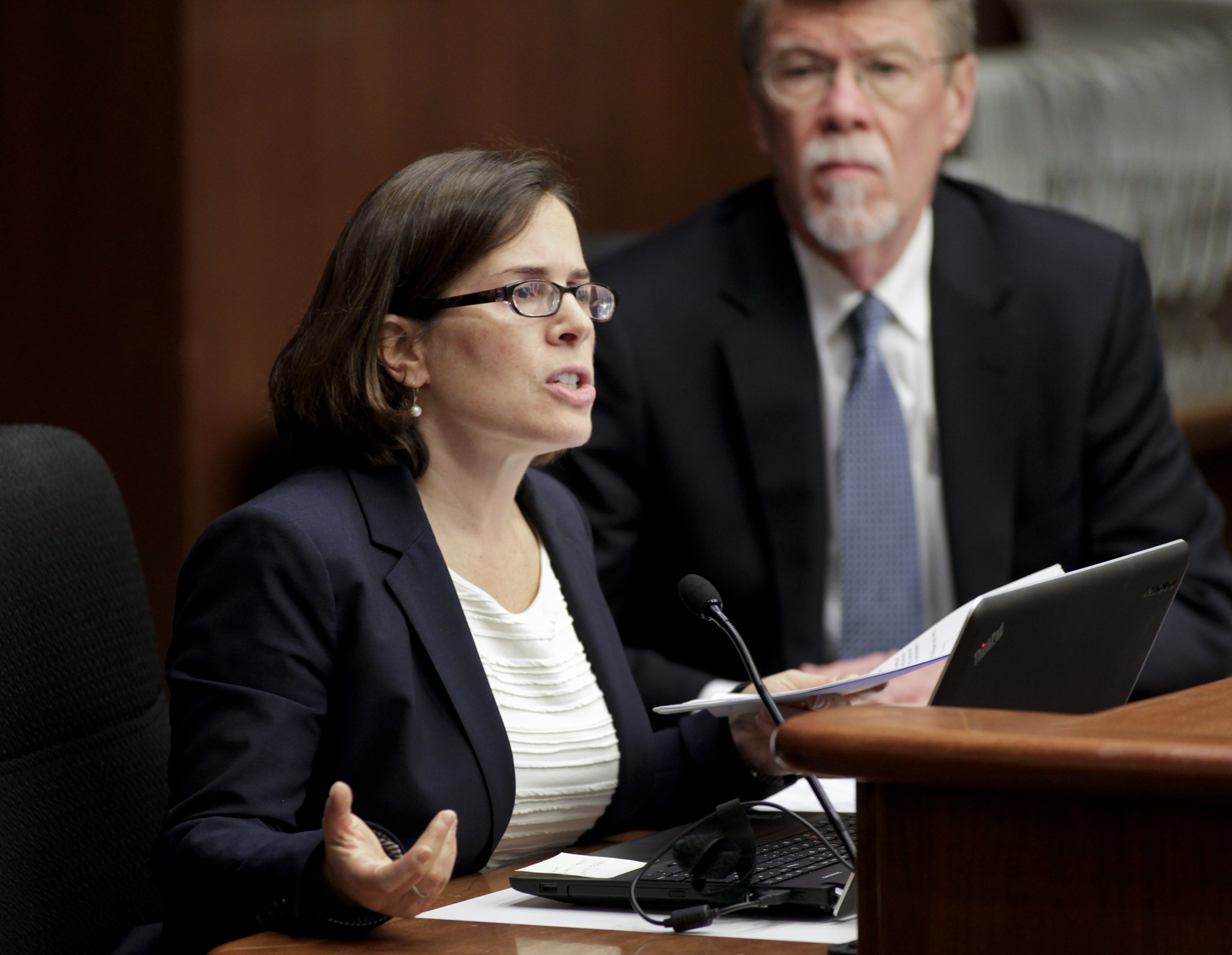Legislative auditor calls for ‘major overhaul’ of teacher licensure law

Lawmakers have their work cut out for them to fix Minnesota’s teaching licensure laws, which a recent legislative audit called “complex, unclear, and confusing.”
“We think it’s time to step back and do a major overhaul of the teacher licensure law,” Legislative Auditor Jim Nobles told the House Education Finance Committee Thursday.
The Legislature requested the audit amid worries about teacher shortages and difficulties faced by teachers trained out of state seeking to teach in Minnesota.
The audit found that unclear statutes have resulted in a system where the Board of Teaching and the Department of Education share responsibility for licensing teachers, which leads to a lack of accountability, Nobles said.
Compared to how Minnesota licenses other professions and how other states license teachers, Minnesota’s hybrid system is an anomaly, said Deputy State Auditor Judy Randall, who conducted the evaluation. The audit recommends consolidating all licensing responsibilities in the Board of Teaching, a recommendation both the board and the Education Department support, according to letters transmitted with the report.
‘Confusing, frustrating, complicated’
Auditors surveyed more than 700 teacher licensure applicants and heard again and again that the licensing structure was “confusing,” “frustrating,” and “complicated,” Randall said.
Having a single entity responsible for both establishing policies and standards for licensing and issuing licenses should help streamline the process and make it easier to address problems, Randall said.
Auditors also recommended clarifying existing law, which does not define many key terms, including “initial license,” “license,” “standard license,” “teaching license,” and “temporary license.”
Complicating the matter is that there are two different types of licensing standards depending on where the candidate was prepared. For example, Randall described the case of an applicant who had received a license in Florida and had no teaching experience beyond five days of student teaching.
“Because of the way the statutes were constructed, they were required to give that candidate a full professional teaching license,” Randall said.
The auditors suggest lawmakers establish a tiered teacher licensing system that would be equally applicable to candidates trained in and out of Minnesota, with lower tier licenses available to teachers with less training.
Rebuilding the entire system will not happen overnight — or over the next 10 weeks.
“It is going to be a complicated, difficult process for you to go through,” Nobles said. “Frankly, we don’t think this is something that be accomplished fully in this legislative session. You probably need to hire a contractor, tear that old building down, get an architect to design a new structure, and start building anew.”
Although all professional licenses are important to the people they effect, the teaching license may be the most important of all, Nobles said.
“It seems to me that teaching … comes to really the heart of who we are as a state and who you are as a Legislature,” he said. “You do a lot of things and have a lot of responsibilities, but building the public education certainly is one of the, if not the, most important. And probably the most important thing in that system is the teacher.”
The House Education Innovation Policy Committee is scheduled to discuss the audit next Tuesday, and Committee Chair Rep. Jenifer Loon (R-Eden Prairie) said she expects the two committees to work closely together on the topic as the session goes forward.
“There’s a lot here to think about, and this is too important a topic to rush forward without really being clear about where we want to go and how we want this to be resolved favorably for teachers and the schools and the students that they serve,” she said.
Related Articles
Search Session Daily
Advanced Search OptionsPriority Dailies
Ways and Means Committee OKs proposed $512 million supplemental budget on party-line vote
By Mike Cook Meeting more needs or fiscal irresponsibility is one way to sum up the differences among the two parties on a supplemental spending package a year after a $72 billion state budg...
Meeting more needs or fiscal irresponsibility is one way to sum up the differences among the two parties on a supplemental spending package a year after a $72 billion state budg...
Minnesota’s projected budget surplus balloons to $3.7 billion, but fiscal pressure still looms
By Rob Hubbard Just as Minnesota has experienced a warmer winter than usual, so has the state’s budget outlook warmed over the past few months.
On Thursday, Minnesota Management and Budget...
Just as Minnesota has experienced a warmer winter than usual, so has the state’s budget outlook warmed over the past few months.
On Thursday, Minnesota Management and Budget...